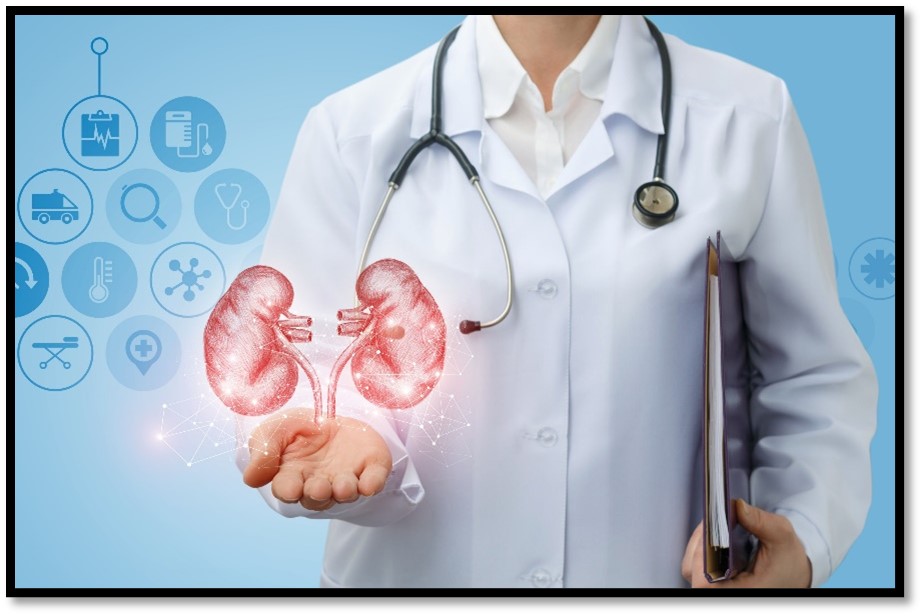
Understanding Kidney Disease
According to the Centers for Disease Control and Prevention, kidney disease affects roughly 15 percent of adults in the United States. What’s even more shocking is nearly 90 percent of those with kidney disease don’t know they have it. Kidney disease doesn’t always produce symptoms, and even when symptoms are present, they are often overlooked or contributed to something else.
It’s possible to manage kidney disease if caught early, but that means people need to understand better what kidney disease is and how it affects the body. March is National Kidney Month, making it a great time to learn about kidney disease and how to prevent it.
What is Kidney Disease
The body has two kidneys located on either side of the spine. The kidneys are responsible for filtering waste out of the body through urine. Kidney disease, also called kidney failure, happens when the kidney no longer functions properly. Those with high blood pressure and diabetes are at the highest risk for developing kidney disease. Other risk factors include smoking, obesity, older age, a family history of kidney disease, and a heart disease history.
Signs and Symptoms of Kidney Disease
Kidney disease progresses slowly, and the early stages of kidney disease may not show any symptoms. When it does start showing signs, many are nondescriptive, meaning they’re not specific to kidney disease, making them easy to overlook. When symptoms do present themselves, they tend to include nausea, vomiting, loss of appetite, fatigue, urination changes, swelling of the feet and ankles, chest pains, high blood pressure, and shortness of breath.
If the kidneys begin to fail, it can cause complications across the body. You may experience fluid retention, leading to swelling of the legs, feet, ankles, or fluid buildup in the lungs. Additional complications include anemia, damage to the central nervous system, heart disease, and weakened bones. If caught early, you can reverse the kidney disease complications, but the damage could be permanent if left untreated.
Preventing Kidney Disease
Healthy kidneys equal a healthy body. Keeping your kidneys strong by maintaining a healthy weight, not smoking, and staying hydrated can significantly reduce your chances of developing kidney disease.
- Maintain a healthy weight. Obesity is a significant risk factor for developing kidney disease, so it’s crucial to maintain a healthy weight as you age. You can manage your weight with regular exercise and proper nutrition. You don’t need to start an excessive workout routine, but try to spend 30 minutes a day doing something active. It can be as simple as taking a walk around your neighborhood. As for your diet, reduce the number of sugars and processed foods you eat. Instead, try to incorporate lots of fresh produce and lean meats.
- Don’t smoke. Smoking is a poor lifestyle habit that affects more than just your kidneys. Smoking causes severe complications to your heart, lungs, skin, and brain. Unfortunately, smoking is an addictive habit, so it can be challenging to quit. If you are struggling with smoking, talk to your doctor about treatment options to help you stop.
- Stay hydrated. Drinking plenty of water allows your kidneys to flush waste and toxins from your body. Keeping hydrated also reduces your chances of developing kidney stones. Older adults should drink roughly 57 fluid ounces of water a day. You can purchase a water bottle with ounce markings to help you keep track of how much you’re drinking.
- See your doctor regularly. Since kidney disease doesn’t have specific symptoms, it’s important to regularly see your doctor for overall health checkups, especially if you have diabetes or high blood pressure. When you visit your doctor, make sure to let them know of any complications you may be experiencing, even if they don’t seem to be a big deal at the time. Keeping track of your symptoms can help doctors identify conditions early and limit your complications.
How Visiting Angels Can Help
If you or a loved one is living with kidney disease and needs assistance around the house, the Visiting Angels Marietta team can help. We can provide light housekeeping, meal preparation, medication reminders, and personal grooming assistance. We can also help seniors transition back to life at home after a kidney transplant or other surgery. Our Marietta office serves those in Marietta and Smyrna, Georgia. If you’d like to learn more about our services, you can schedule a free consultation online or give us a call at 770.709.6884.
